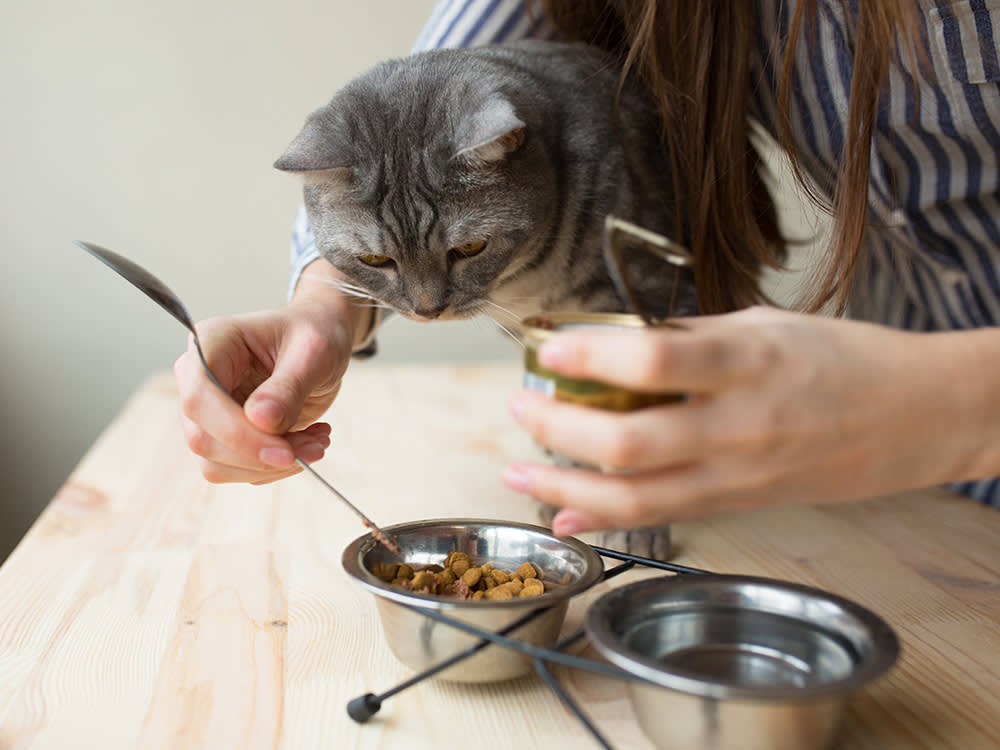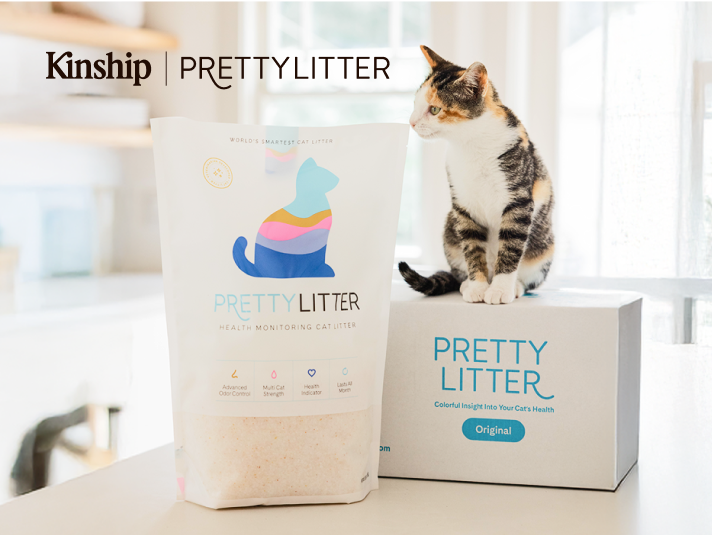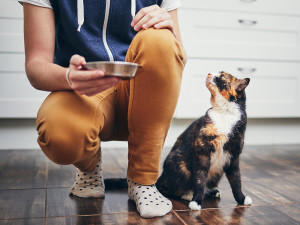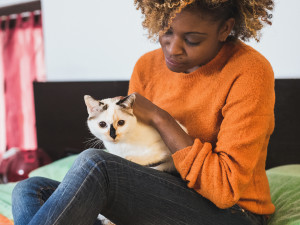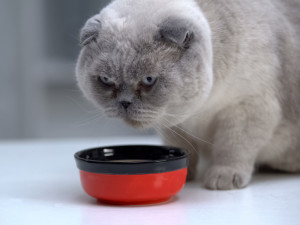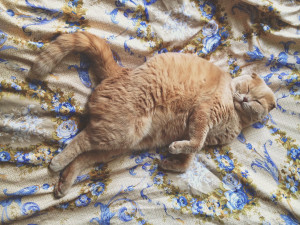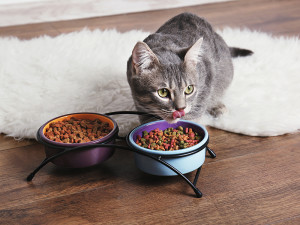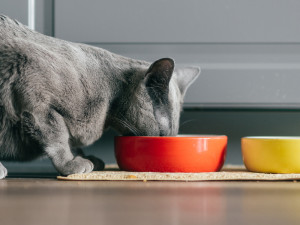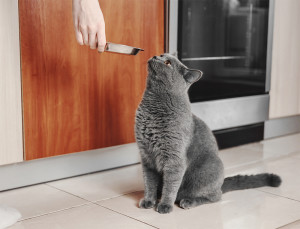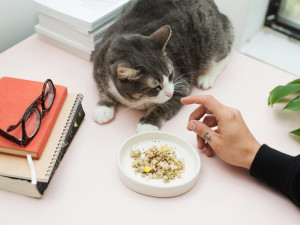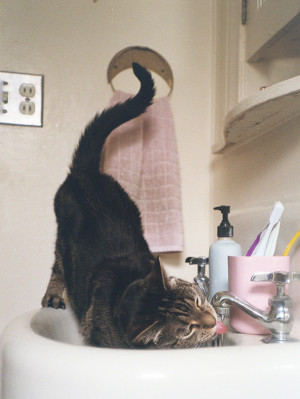Does Your Cat Need a High-Protein Diet Like Some Bro at the Gym?
While they might not be working on their “gains,” there are other reasons this diet could be a good fit.
Protein-forward diets are definitely trendy for humans right now, so it makes sense that they’re an option for the kitties in your life, too. Cats are obligate carnivoresopens in new tab, which means that their bodies are designed to get the bulk of their nutrients from eating whole prey. That prey includes lots of protein, decent amounts of fat, and very few carbohydrates. Any cat food that is complete and balanced for daily nutrition will contain adequate amounts of protein, as well as all of the other essential nutrients for a cat.
But there are some situations when it may benefit a cat to be on a higher-protein, lower-carbohydrate diet that is more extreme than the typical over-the-counter varieties. This can be beneficial for overweight cats who need to lose weight, and/or diabetic cats. There are also some situations when it would not be safe for a cat to be on an especially high-protein diet, such as cats with kidney or liver diseases. It’s important to speak with your vet about the best options for your cat.
Save on the litter with color-changing tech that helps you better care for your cat.
Which cats benefit from a high-protein diet?
Cats Who Are Overweight
Cats who are overweight or obese may develop serious health problems, including joint pain and arthritis, problems grooming themselves, diabetes, breathing problems, and anal gland issues. For these reasons, it is important to maintain an ideal body weight for cats, especially indoor cats who tend to be less active than outdoor cats. For those cats who have already reached a concerning weight, vets may recommend a diet change along with other measures to reduce their weight and get them feeling better. High-protein diets can help with weight loss in some cases.
With over-the-counter diets, it is important to choose a canned diet. These tend to have lower carbohydrates than the dry varieties, and the added moisture can also help cats to feel full and stay hydrated. Be sure to analyze the label’s other nutrients to check that it is not also high in fat and generally high in calories. It’s a good idea to consult your vet and/or a veterinary nutritionist to help you analyze the label.
Diabetic Cats
Diabetic cats often need a special diet to help control their blood sugar, and these diets tend to be high-protein and low-carbohydrate combinations. The cool thing about diabetic cats is that some of them can actually go into remissionopens in new tab when they stay on these diets long-term, and they don’t need insulin injections anymore. In some cases, diabetic cats who are very overweight may alternatively benefit from a high-fiber diet because this can help cats lose weight by making a low-calorie diet still feel filling. It is important to speak with your vet and make a diet choice based on the overall health profile of your cat.
Are high-protein diets best for long-term or short-term use?
In most cases, a high-protein diet can and should be used long-term. As long as the diet is complete and balanced, it is safe to use for the foreseeable future. This really should be forever for diabetic cats, even if they go into remission. Their diabetes can return if they go back to a higher-carbohydrate diet. It is possible that overweight cats can switch to a different diet once they achieve a healthy weight.
A warning: If your cat goes back to eating a diet higher in carbohydrates or calories, they may also gain weight again. Most cats will tolerate a higher-protein diet very well, so there is no real need to discontinue the diet, unless they develop a health problem that makes high protein unsafe for them.
When should you avoid a high-protein diet for your cat?
There are certain health conditions for which high-protein diets should be avoided. The most common ones that come up in cats are certain liver or kidney diseases. In the body, excess protein is broken down into amino acids, which are then broken down into urea. Urea is excreted by the kidneys.
For cats with kidney disease, their kidney function is diminished, so high-protein diets can be an added strain. Additionally, some kidney diseases cause protein loss through the kidneys, known as protein-losing nephropathy, and in these cases, it is especially hard on the kidneys to have to filter out excess protein. Vets usually prescribe a low-protein diet for these cats, as well as for cats with liver diseases.
Things to watch out for with high-protein diets.
Protein is one of many important factors to consider when selecting a diet, and it is always important to analyze the overall diet and not just one nutrient in isolation. In some cases, diets that are high in protein are also energy-dense, or very high in calories and fat, which can lead to weight gain. If your goal is to select a diet to help with weight control, it would be very important to assess each diet for this as well. Many of these high-protein/low-carbohydrate diets are also low in fiber because fiber can contribute to the carbohydrate content.
Some cats really need fiber in their diets to help with constipation and other digestive problems, so they may do best on a diet that has a more moderate carbohydrate count with a higher-fiber component. As always, it is important to consult with your vet if you are making a diet change as part of a medical treatment plan.
